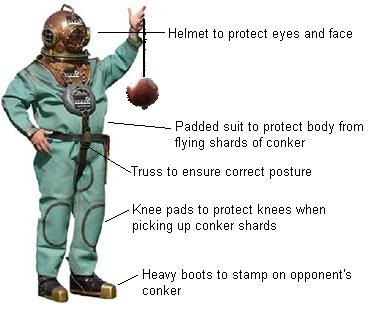
When I met Maxima in XV, the Draughty Old Fen's charity shop, she and Vecta were looking worriedly at a load of boxes filled with fairly-traded produce which the chap delivering had dumped in front of the counter instead of taking them behind, as Vecta had asked. Maxima asked me to help her carry boxes over one-by-one, and this is where my qoundam training as a moving and handling facilitator came in.
I explained that, if possible, it's better for one person to carry a heavy box because when two people carry, either both are walking like crabs, with spines out of alignment all over the place, or one is walking ahead with a textbook posture, and the other is walking backwards. There ended the lesson. I didn't add that the last moving and handling training I was forced to attend involved sitting imagining how our backs would swivel were we on skateboards - the car-park hadn't been risk-assessed for us to stand in.
Much - indeed most - health and safety management today is "risk-led", ie possible risks are identified, with a view to devising strategies to prevent the putative hazards. I'm not saying these are totally divorced from reality: in a medium-sized office I know where people feed numbers into computers, at the back of the accident book there's a chart to help one calculate possible risk, which ranges from "low-risk" to "multiple deaths".
You could say, for example, that Britain is full of graveyards with municipal
 ly-desecrated headstones because of the risk of the latter, as Government figures cite seven deaths and 21 injuries due to falling headstones. So insurance companies are refusing to cover cemeteries with graves which have even the least risk of falling, even if no injuries (or indeed falls) have occurred for centuries. Likewise, some schools have banned conkers because of the possible risk, taking no account of what injuries have occurred and in what circumstances. (Although the Daily Mail article linked to recounts the story of a poor boy killed by a gravestone while collecting conkers, so I wonder if the number-crunchers got confused in a frenzy of probabilities.)
ly-desecrated headstones because of the risk of the latter, as Government figures cite seven deaths and 21 injuries due to falling headstones. So insurance companies are refusing to cover cemeteries with graves which have even the least risk of falling, even if no injuries (or indeed falls) have occurred for centuries. Likewise, some schools have banned conkers because of the possible risk, taking no account of what injuries have occurred and in what circumstances. (Although the Daily Mail article linked to recounts the story of a poor boy killed by a gravestone while collecting conkers, so I wonder if the number-crunchers got confused in a frenzy of probabilities.)In the furore
 surrounding MPs' abuses of expenses allowances, former Conservative Party Chairman Norman (now Lord) Tebbit displayed a magisterial grasp of the anticipation and management of risk when he encouraged voters to vote for smaller parties in the forthcoming European elections, a move which Telegraph blogger Benedict Brogan states has led to the threat of his expulsion.
surrounding MPs' abuses of expenses allowances, former Conservative Party Chairman Norman (now Lord) Tebbit displayed a magisterial grasp of the anticipation and management of risk when he encouraged voters to vote for smaller parties in the forthcoming European elections, a move which Telegraph blogger Benedict Brogan states has led to the threat of his expulsion.Tebbit would have learnt more about risk-management working as a military and civilian pilot than insurers and inspectors could grasp in a month of Sundays. And he's playing a risky but canny game here - just as he was part of the Tory Opposition team which forced the Labour Government to reduce tax prior to Margaret Thatcher's 1979 victory, he is now indicating to voters that the Conservative Party will stand or fall by its reaction to the scandal, while Labour Prime Minister Gordon Brown dithers and his pet Speaker makes the sort of hollow threats (about police investigations) that the playground bully does when he meets somebody who doesn't run away.
I hope we don't lose any seats in Brussels - but should that happen, I predict that Conservative MPs' expenses will become very clean very soon. And Britain - and the world - will see that not everybody here has been so cowed by the threat of litigation and action by police who would rather do police-work that they keep their heads under the parapet.
And come the next election, we might see kids looking for conkers to play with at school again. Just not under gravestones.












I couldn’t resist commenting
ReplyDeleteMy web blog - fitnesshappiness.com
my web site :: mytwominutes.com